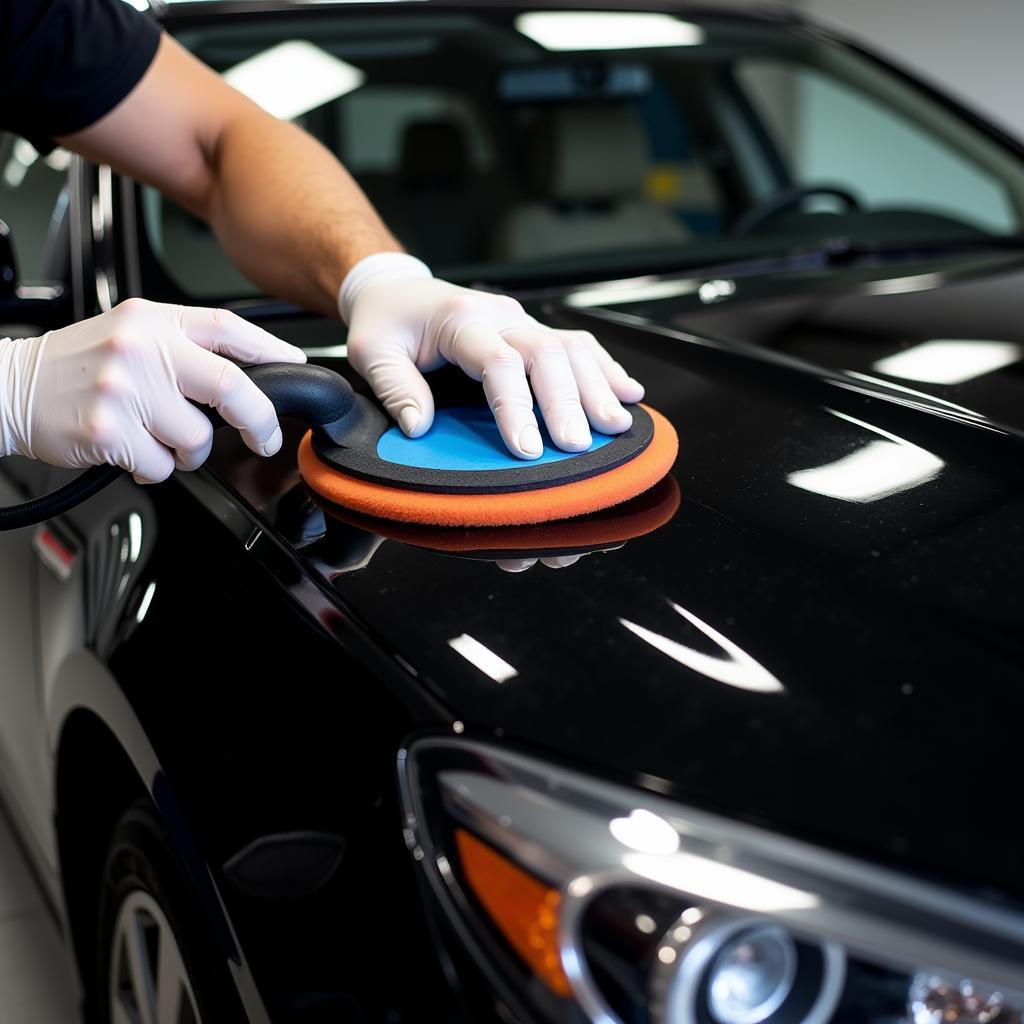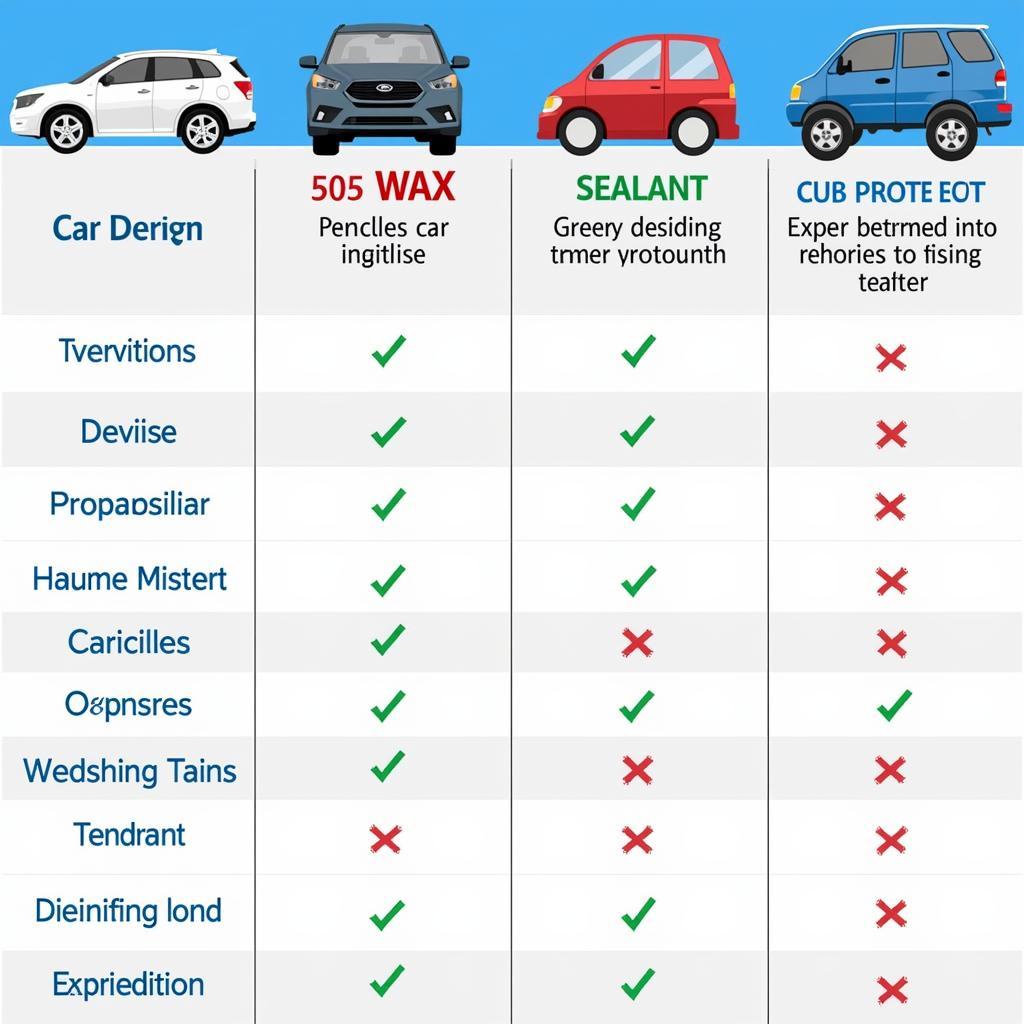Best Car Detailing Paint Protection is crucial for maintaining your vehicle’s appearance and value. It shields your car’s paint from the harsh elements, preventing damage and preserving its showroom shine. Understanding the different options and choosing the right protection for your needs can be overwhelming, so this guide will break down everything you need to know.
Choosing the best car detailing paint protection is a critical decision for car owners. Whether you’re looking for long-term protection or a quick fix, understanding the various options available can be a game-changer. This guide explores the different types of paint protection, their benefits, and how to choose the best one for your car and budget. This will help you preserve your car’s finish and maintain its value for years to come. Find the best car detailing in Seattle, Wilmington, or New Jersey. You can also learn about the best car detailing in Hawaii.
Types of Car Detailing Paint Protection
Several types of paint protection products are available, each with unique benefits and drawbacks. From traditional waxes and sealants to more advanced ceramic coatings and paint protection film (PPF), the choices can seem endless. Understanding the differences between these options is essential to making an informed decision.
Wax
Car wax is a traditional form of paint protection offering a deep gloss and shine. It’s relatively inexpensive and easy to apply, making it a popular choice for DIY enthusiasts. However, wax offers limited protection and typically lasts only a few weeks.
Sealant
Synthetic sealants provide more durability than wax, offering protection for several months. They provide a slick finish and enhance the paint’s color depth. Sealants are a good option for those looking for longer-lasting protection than wax, but without the high cost of ceramic coatings.
Ceramic Coatings
Ceramic coatings are a more advanced form of paint protection that forms a chemical bond with the paint, creating a semi-permanent layer of protection. They offer superior resistance to scratches, UV rays, and chemical contaminants, and can last for several years. Ceramic coatings require professional application and are more expensive than wax or sealants.
Paint Protection Film (PPF)
PPF is a thermoplastic urethane film applied to the vehicle’s paint, providing a physical barrier against scratches, rock chips, and other environmental hazards. It offers the highest level of protection and is often used on high-end vehicles or areas prone to damage, such as the front bumper and hood. PPF is the most expensive option but provides the ultimate peace of mind.
 Applying a Ceramic Coating to a Car’s Paint
Applying a Ceramic Coating to a Car’s Paint
Which Paint Protection is Right for You?
Selecting the best paint protection depends on various factors, including your budget, the level of protection desired, and the amount of time you’re willing to invest in maintenance. For those on a tight budget or looking for a quick shine, wax is a viable option. If you want more durable protection, a sealant is a good choice. For the ultimate protection and longevity, ceramic coatings or PPF are the best options. Check out our guide on the best cleaning products for car detailing.
What is the best car detailing paint protection for daily drivers?
For daily drivers, a ceramic coating offers a good balance of protection and durability. It provides excellent resistance to the elements and requires minimal maintenance.
How long does paint protection last?
The lifespan of paint protection varies depending on the type of product. Wax typically lasts a few weeks, while sealants can last several months. Ceramic coatings can last for several years, and PPF can last even longer with proper care.
 Comparison of Car Wax, Sealant, and Ceramic Coating
Comparison of Car Wax, Sealant, and Ceramic Coating
Maintaining Your Paint Protection
Regardless of the type of paint protection you choose, proper maintenance is essential to maximizing its lifespan and effectiveness. Regular washing and drying with quality car wash soap and microfiber towels will help keep your car looking its best. Avoid harsh chemicals and abrasive cleaning tools that can damage the protective layer. You may need to reapply wax or sealant periodically, while ceramic coatings require less frequent maintenance. Learn more about the best car detailing in Wilmington NC.
Conclusion
Best car detailing paint protection is an investment that will protect your car’s finish and maintain its value for years to come. By understanding the different types of protection available, you can choose the best option for your needs and budget. Regular maintenance is essential to ensure your paint protection remains effective and keeps your car looking its best. Consider the best car detailing in New Jersey for professional services.
FAQ
- What is the most durable paint protection? Paint protection film (PPF) is generally considered the most durable.
- Is ceramic coating worth it? Yes, especially for long-term protection and ease of maintenance.
- How often should I wax my car? Every few weeks is recommended for optimal shine and protection.
- Can I apply ceramic coating myself? Professional application is recommended for the best results.
- What is the difference between a sealant and a wax? Sealants are synthetic and offer longer-lasting protection than natural waxes.
- How much does paint protection cost? The cost varies depending on the type of protection and the size of your vehicle.
- How do I maintain my car’s paint protection? Regular washing and drying with quality products is essential.
You may also want to check out best car detailing hawaii for more information.
Need help deciding which paint protection is right for your vehicle? Contact us via WhatsApp: +1(641)206-8880 or Email: [email protected]. Our 24/7 customer support team is ready to assist you.

Leave a Reply